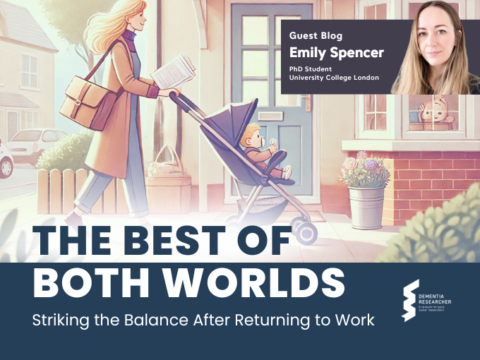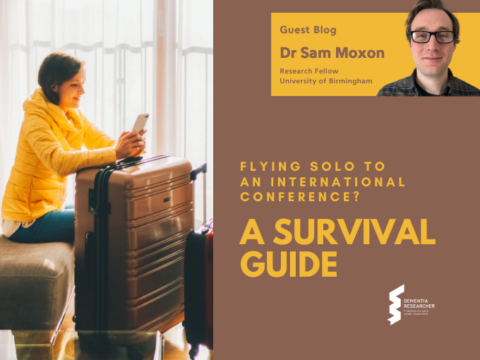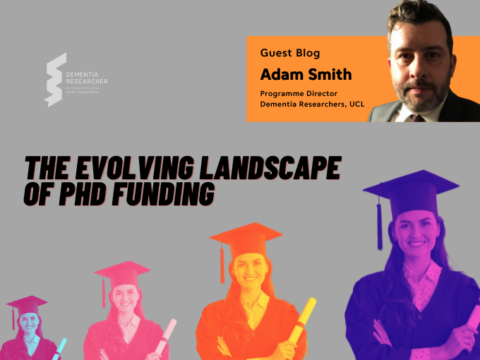Many still view the term ‘commercialisation’ as a dirty word in medical academia. Academics do the work they do to try and alleviate suffering in the world and are not necessarily using monetary returns as a primary motivation. If they wanted to earn more, they would have likely gone out into industry where the proverbial moneybags are larger and more generously distributed. However, in order to actually alleviate suffering through research you usually have to commercialise it. Why? Because a medicine needs to do more than just work in a patient. It needs to be sold by a company that will make profit from it. We can argue the morality of this but it does not change the fact that it is the truth. Companies spend many many millions for each therapy they develop. This includes development, testing, clinical trials and setting up distribution chains. If they can’t then sell it for a profit, they become unsustainable and fold. If all the pharma companies fold, we have no new medicines. So how does this all tie back to the academic cliché of publish or perish? Bare with me… I am getting there.
The phrase ‘publish or perish’ is one most people working in research will have heard. It’s based on the principal that, as an academic, two things act as your currency. The first is winning grants, the second is publishing papers. Universities want you to bring money in and turn it into published outputs that can justify bringing more money in. Publish or perish is essentially a business model. However, it is not a good one. It often pushes researchers to race to put out paper after paper instead of focussing on quality. On top of that, it can greatly harm a researcher’s opportunity to commercialise their work and here’s why.
In order to translate your work into a therapy that will actually help patients you need to commercialise it. We’ve already established that. However, in order to commercialise it you have to protect the idea so that nobody else can do it and make profit off it. Failing to do so will not only risk someone stealing your idea, it will also make it pretty impossible for you to attract the kind of investment you need to develop that idea into a new therapy. Clinical trials are way too expensive for standard university funding routes. This is why most trials are run by or in partnership with pharma companies. You have the idea, they have the money to make it happen.
To protect your idea you need to patent it (normally via your university technology transfer office). In order to patent the idea, you usually need to hold off on publishing a paper on it until AFTER the patent is published. This will take, on average, 18 months from the day of filing your patent. That is 18 months where your idea has to sit within your office. You cannot publish it. But your idea is great right? It’s revolutionary… that’s why you can patent it. Nobody else knows how to do it. But what if someone else does? And what if they publish it before you do and you never get the credit or recognition for that idea? It’s publish or perish and you are letting a piece of gold melt away on your desk waiting for this bloody patent to come through. No… forget the patent. Just publish it instead…
Now you can see the problem. The publish or perish mantra often pushes academics to choose writing a paper on their great new idea instead of protecting it with intellectual property clauses. In that 18 months you can get the paper out and start presenting it at conferences across the globe. You could even write a new research grant around it. That all looks great on your academic CV but none of that stuff means anything to most investors. They want an idea that is patent protected and you have something that is impossible to protect. Furthermore, the pressure to publish in prestigious journals can promote a prioritisation of research with theoretical contributions rather than the applied research that is required to create commercial potential. As a result, research outcomes that could have practical applications and commercial value may receive less attention or be undervalued in academic circles.
Now I am not saying publish or perish does not have some place in research (although I think it’s a bit too aggressive). Academics do need to publish in order to continue to contribute to wider knowledge in the field. But it is important to recognise when you have to wait and, instead, protect your idea. You can still publish it after that. Ultimately, we must balance between productivity and commercialisation efforts to fully realise the societal and economic benefits of research outcomes. You cannot help anyone if your idea never makes it out of your university lab. Universities and funding agencies must incentivise and support researchers to engage in both academic publishing and commercialisation activities. We all want to end suffering and we must work harder to translate our work so that the people who need our help can receive it. Forget the publish or perish mantra. Instead ask yourself what kind of idea you are working on and should you publish or patent? The journals can wait for your idea. Sometimes the patients cannot.

Dr Sam Moxon
Author
Dr Sam Moxon is a Research Fellow at the University of Birmingham. His expertise falls on the interface between biology and engineering. His PhD focussed on regenerative medicine and he now works on trying to develop 3D bioprinting techniques with human stem cells, so that we better understand and treat degenerative diseases. Outside of the lab he hikes through the Lake District and is an expert on all things Disney.

 Print This Post
Print This Post





Thanks for writing and posting this. I agree that there are tensions between what universities expect researchers to do and what might be of greatest benefit to patients and the public.
But I’d like to suggest a re-framing that may get round at least part of the problem. You write: “in order to translate your work into a therapy that will actually help patients you need to commercialise it.” If you replace “you need to” with “someone needs to” then your statement is still true. Commercialisation may be the best route by which to develop a discovery into something that helps patients, but this need not involve the researcher(s) who made the discovery.
If a researcher discovers something that has therapeutic potential, it seems as though best thing to do, in both ethical and practical terms, is to publish as soon as possible: ethical, because we want discoveries that could help patients to make that “bench to bedside” move as quickly as possible; practical, because researchers may be excellent at discovering things but are not necessarily excellent at commercialising them, and also have other pressures on their time and capacity. Why should researchers not stick to what they are best at – research – and leave the commercialisation to others?